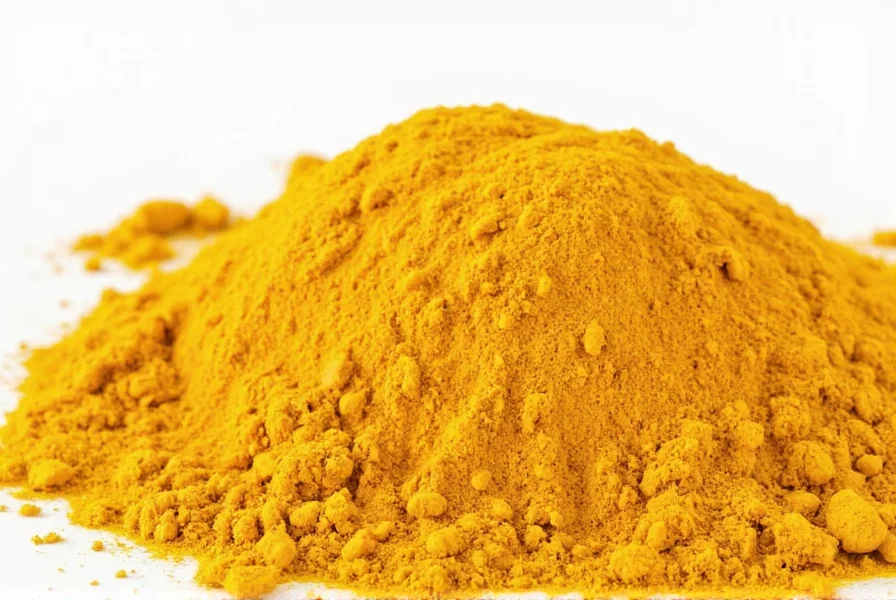Curcumin, the primary bioactive compound in turmeric, has gained attention in weight management research due to its potential effects on metabolic health. While turmeric supplements won't magically melt away fat, emerging scientific evidence suggests they may provide supportive benefits when incorporated into a comprehensive weight management strategy.
The Science Behind Turmeric and Weight Management
Multiple studies have investigated curcumin's potential role in weight management. A 2015 review published in Evidence-Based Complementary and Alternative Medicine analyzed several clinical trials and found that curcumin supplementation was associated with modest reductions in body weight, BMI, and waist circumference. However, these effects were most pronounced when combined with dietary changes and physical activity.
Researchers believe curcumin may influence weight management through several mechanisms:
- Reducing inflammation that can contribute to obesity-related metabolic issues
- Modulating adipokines (hormones produced by fat tissue)
- Supporting healthy insulin sensitivity
- Potentially influencing fat metabolism at the cellular level
It's important to note that most studies showing positive effects used standardized curcumin extracts at doses of 500-1,000 mg daily, often combined with piperine (from black pepper) to enhance absorption. The typical turmeric used in cooking contains only about 3% curcumin by weight, making dietary intake alone insufficient for therapeutic effects.
| Study | Participants | Curcumin Dosage | Key Findings |
|---|---|---|---|
| Di Pierro et al. (2015) | 44 overweight adults | 800 mg/day with piperine | Significant reduction in BMI and body fat percentage after 30 days |
| Heydari et al. (2017) | 117 prediabetic adults | 1,500 mg/day | Improved insulin sensitivity and reduced weight gain progression |
| Panahi et al. (2016) | 100 metabolic syndrome patients | 1,000 mg/day with piperine | Reduced waist circumference and improved lipid profiles |
Realistic Expectations for Turmeric Weight Loss Benefits
When considering turmeric for weight management, it's crucial to maintain realistic expectations. Research consistently shows that curcumin's effects are modest and work best as part of a comprehensive approach. Does turmeric help with weight loss? The evidence suggests it may provide supportive benefits, but it's not a magic solution.
Many online sources overstate turmeric's weight loss capabilities, creating unrealistic expectations. Scientific evidence supports turmeric as a potential complementary approach rather than a primary weight loss intervention. The most effective weight management strategies always include:
- Nutritionally balanced eating patterns
- Regular physical activity
- Adequate sleep and stress management
- Sustainable lifestyle changes
How to Use Turmeric Effectively for Weight Management
If you're interested in incorporating turmeric into your weight management plan, consider these evidence-based recommendations:
Dosage and Bioavailability
For potential metabolic benefits, studies typically use 500-1,500 mg of standardized curcumin extract daily. Since curcumin has poor bioavailability on its own, look for formulations that include:
- Piperine (black pepper extract) - increases absorption by up to 2,000%
- Liposomal delivery systems
- Curcumin blended with healthy fats
When using culinary turmeric, combine it with black pepper and a healthy fat source like olive oil or coconut milk to enhance absorption of the small amount of curcumin present.

Safety Considerations
Turmeric is generally safe when consumed in food amounts. However, high-dose supplements may cause:
- Digestive discomfort in some individuals
- Interactions with blood-thinning medications
- Potential issues for people with gallbladder problems
Consult with a healthcare provider before starting turmeric supplements, especially if you have medical conditions or take medications. This is particularly important when exploring turmeric and curcumin for weight management as part of your health regimen.
Integrating Turmeric into a Comprehensive Weight Management Strategy
The most effective approach to weight management combines multiple evidence-based strategies. Consider turmeric as one potential component of a broader plan that includes:
- Whole-food, nutrient-dense eating patterns
- Regular physical activity tailored to your abilities
- Adequate hydration
- Stress reduction techniques
- Sufficient quality sleep
When evaluating scientific evidence on turmeric weight loss claims, be wary of sources promising dramatic results without lifestyle changes. Sustainable weight management requires consistent effort across multiple areas of health.

Current Research Limitations and Future Directions
While promising, research on turmeric for weight management has limitations:
- Many studies have relatively small sample sizes
- Long-term effects beyond 3-6 months are not well documented
- Optimal dosing protocols still need refinement
- Individual responses may vary significantly
Researchers continue to investigate how curcumin might support metabolic health through its anti-inflammatory properties and potential effects on adipose tissue biology. Future studies may provide more precise guidance on how to use turmeric for weight loss effectively for different population groups.
Conclusion
Turmeric, specifically its active compound curcumin, shows promise as a supportive element in weight management strategies based on current scientific understanding. However, it's essential to approach turmeric weight loss benefits and limitations with realistic expectations. The most effective weight management approaches combine evidence-based nutrition, physical activity, and lifestyle factors, with supplements like turmeric playing a potential complementary role rather than serving as primary interventions.











 浙公网安备
33010002000092号
浙公网安备
33010002000092号 浙B2-20120091-4
浙B2-20120091-4